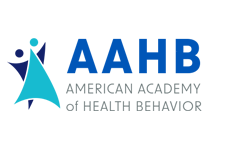Abstract
Reliance on social media for health information is widespread, yet impacts of social media use (SMU) on health behaviors during infectious disease pandemics are poorly understood. We used a random sample from a university student directory to invite students to take a cross-sectional online survey during the coronavirus pandemic. Survey questions assessed adherence to public health guidelines, knowledge of COVID-19/SARS-CoV2, and mental health symptoms. Students were classified based on their level of SMU for information on COVID-19 as: (1) none, (2) some use, or (3) main source. Weighted regressions were used to relate SMU to adherence (five-point scale) and knowledge (six-point scale), with higher scores representing higher adherence/knowledge, and to mental health (PHQ-8 and GAD-7 scales). The weighted prevalence of SMU for COVD-19 information was 71.3%, and 17.1% of students identified SMU as their main source of COVID-19 information (total N = 181). Mean adherence ranged from 3.71±0.17 (SEM) for none, to 3.94±0.14 (SEM) for main source, and differences were not statistically significant at the 95% confidence level. Knowledge scores decreased from 5.44±0.11 (SEM) for none, to 5.38±0.08 for some, and 5.23±0.16 for main source (p = 0.056). The weighted prevalence of depression was 38.7%, 43.1%, and 51.9% for none, some use, and main source; weighted prevalence of anxiety was 19.7%, 27.0%, and 36.7%, respectively. Effects of SMU for information during pandemics on health behavior merits further research, especially regarding adherence to public health guidelines. In the case of COVID-19, SMU may be negatively correlated with knowledge and mental health.
Creative Commons License

This work is licensed under a Creative Commons Attribution-Noncommercial 4.0 License
Recommended Citation
Hagen, Molly M.; Hartzell, Sarah Y.T.; and Devereux, Paul G.
(2021)
"Social Media Use and COVID-19: A Cross-Sectional Study Examining Health Behaviors, Knowledge, and Mental Health Among University of Nevada, Reno Students,"
Health Behavior Research:
Vol. 4:
No.
2.
https://doi.org/10.4148/2572-1836.1100
Included in
Community Health Commons, Epidemiology Commons, Influenza Humans Commons, Other Mental and Social Health Commons, Other Public Health Commons, Psychiatric and Mental Health Commons, Public Health Education and Promotion Commons, Virus Diseases Commons




